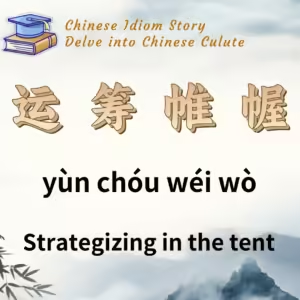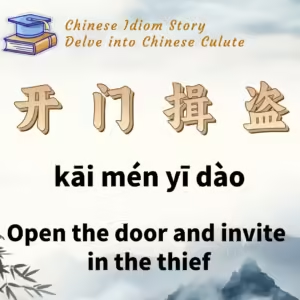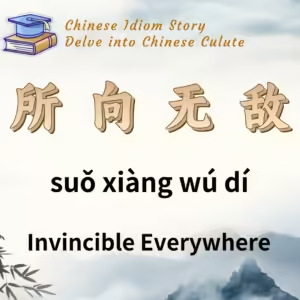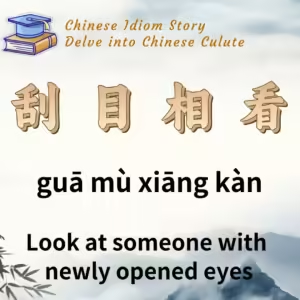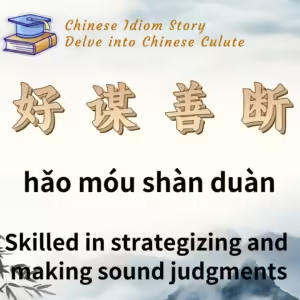
Chinese Idiom: 好谋善断 (Hao Mou Shan Duan)
English Translation: Skilled in strategizing and making sound judgments
pīn yīn: hǎo móu shàn duàn
Idiom Meaning: This idiom describes someone who is diligent in thinking and adept at making decisions, often used to praise a person’s strategic ability and judgment.
Historical Source: Lu Ji’s work “辨亡论” during the Jin Dynasty.
Idiom Story:
During the Three Kingdoms period, Sun Quan, the ruler of Eastern Wu, was renowned for his ability to attract and utilize talented individuals. He valued and respected those with skills and was known for rewarding those who chose to serve him. Notable figures such as Lu Su and Zhuge Jin sought refuge under his leadership and were duly recognized for their talents.
In 208 AD, following the death of Liu Biao, the governor of Jiangzhou, Lu Su advised Sun Quan to send a delegation to Jiangzhou under the pretext of mourning, aiming to forge an alliance with Liu Bei, who was dependent on Liu Biao. This alliance would enable them to jointly confront the powerful forces of Cao Cao.
Upon meeting Liu Bei, Lu Su successfully secured his agreement to the alliance and brought Zhuge Liang along to present their case to Sun Quan. At that time, Sun Quan was still uncertain about the next steps. However, Zhuge Liang’s strategic insights convinced him of the urgency of taking action against Cao Cao, who was advancing with his army.
Zhuge Liang warned Sun Quan that if they did not act soon, they would face a disaster. He pointed out that Cao Cao’s troops were exhausted from their march and were unaccustomed to naval warfare. With a united front between the forces of Sun and Liu, they stood a good chance of defeating Cao Cao.
After hearing Zhuge Liang’s analysis, Sun Quan’s resolve to ally with Liu Bei against Cao Cao strengthened. He called a meeting with his officers, during which Zhou Yu outlined the weaknesses of Cao Cao’s forces. Zhou Yu also highlighted that Cao Cao had committed a significant military blunder and urged Sun Quan to send several thousand elite troops, assuring him of a decisive victory.
Encouraged by these assessments, Sun Quan made the strategic decision to appoint Zhou Yu as the left commander, Lu Su as the military advisor, and Cheng Pu as the right commander, entrusting them with an army of 30,000 troops to march west along the Yangtze River to join forces with Liu Bei and confront Cao Cao’s army.
The resulting Battle of Red Cliffs was a significant victory for the allied forces, leading to a tripartite division of power among the three kingdoms: Wei, Shu, and Wu.
Sun Quan’s effective governance and his talent for identifying and employing capable individuals were key factors in the growing strength of Eastern Wu. His ability to strategize and make astute decisions earned him the reputation captured in the idiom 好谋善断.


